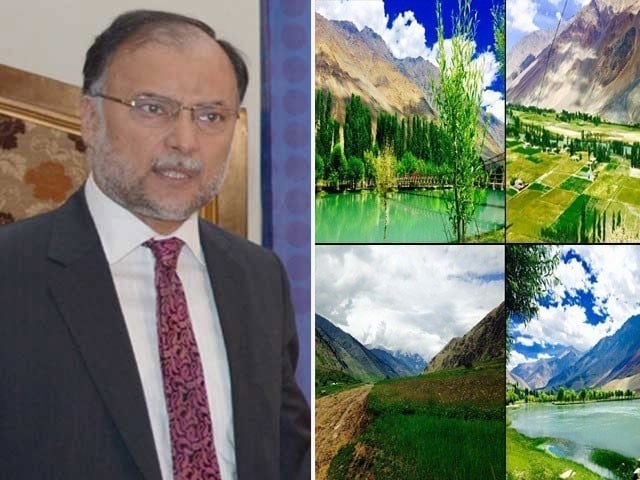Islamabad: Federal Minister for Planning Ahsan Iqbal expressed satisfaction with the tourism opportunities in the country and proposed the establishment of a National Tourism Coordination Center. He highlighted that tourism contributes nearly 10% to the global GDP.
While addressing the first National Tourism Awards ceremony in Pakistan, Minister Iqbal shed light on the immense potential of the country’s tourism sector and its significant role in national development. The event celebrated the achievements of key figures associated with tourism, including tour operators, journalists, and logistics providers.
Iqbal presented tourism as not just an industry but a bridge connecting people, cultures, and nations. He emphasized the importance of tourism in promoting understanding, creating employment opportunities, and contributing to national progress.
He noted that tourism accounts for approximately 10% of the global GDP, with one in ten jobs worldwide linked to this sector.
The federal minister mentioned Pakistan’s natural beauty, stating that the country has abundant tourism potential, ranging from the northern mountains to the deserts of Cholistan and Balochistan. However, he lamented that inconsistent policies have hindered the full utilization of these resources.
He assured that tourism is a crucial part of Prime Minister Shehbaz Sharif’s economic agenda, and the government is making substantial efforts for economic recovery.
Ahsan Iqbal praised the security and economic reforms implemented under the leadership of former Prime Minister Nawaz Sharif, which restored Pakistan’s global reputation, making it an attractive destination for tourists and investors.
He reminded the audience that Pakistan was once considered one of the most dangerous countries in the world, but by 2017, it had transformed into a favored destination for tourists, a success attributed to the restoration of security and economic stability.
The minister stressed the need for infrastructure development to promote tourism, stating that improving roads, motorways, and tourist sites is essential. He also suggested the creation of a National Tourism Coordination Center to facilitate organized management of tourism at national and international levels, especially after the 18th Amendment transferred tourism to the provinces.
Furthermore, he emphasized the importance of promoting a culture of tolerance and acceptance in the context of religious tourism. He cited Malaysia, Saudi Arabia, and Turkey as successful examples of countries that have maintained their cultural and religious values while establishing themselves as popular tourist destinations.



